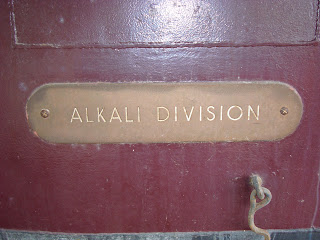 |
| Rope by Kip |
I spent last Friday morning speaking Weldish. Today, I am speaking Stovian. The topic is flue and chimney and draw and draught. It’s just one of many languages I’m learning. I’m not fluent in any but I’m acquiring whole, new lexicons and beginning to understand and make myself understood.
Take Voltagean; Steve, the electrician, is more patient than some and takes the trouble to explain some of the trickier vocabulary – three phase inverter, photovoltaic arrays and suchlike. But it’s the grammar of languages that I’ve always had such difficulty with. Constructing a simple sentence is manageable, for example:
“The bulb is in the lamp.”
Nouns in the right place and verb and preposition correct so darkness averted and I glow with pride.
Or even:
“The 100w bulb is in the flourescent lamp.” Not exactly a dazzling piece of conversation I grant you. But never underestimate an adjective. You can disguise all manner of ghastly grammatical errors in a beautiful description.
Trying to assemble something comprehensible involving frequency circuits, oscillators, diodes and ....I’m afraid I can’t make those connections at all.
Many a kilowatt-hour has been spent studying and researching Voltagean.
Although lively, it is a precise and mathematical language and there is no margin for error – the slightest slip-up can put you in a dangerous situation. I doubt I shall ever grasp it.
It’s a dynamic language – all that charging and inducting, those currents flowing, pulsing, energies scintillating. Nothing is still, everything continually alternating, transforming, transmitting. And there is a romance to it, a mystery; it feels as though one must always be decoding abstract concepts; nothing is what it seems. The words have arcane, magical properties; like shape-shifters, one thing can change into another thing; intangibles become sensual, actual. Electricity becomes warmth, light, power. Amps, volts, sinusoidal waves are un-seeable, untouchable, almost unimaginable nouns. Invisible but paradoxically, illuminating.
 |
Hawser
by
Kip |
Basic Carpentese on the other hand, I can speak passably well. I have to admit though, after an exchange of pleasantries and the rudimentary nail, hammer and tongue and groove, I’m starting to bang my head against a panelled wall. While it does have its creative side, at my level it’s a solid and practical language, chock-a-block with single-syllable words like plank, nut, bolt, screw. I do enjoy its rhythms, its onomatopoeia. And “plane”, “drill”, “saw” - the tools do what they say on the tin.
The language of metallurgy is riveting. It takes years to achieve fluency and requires knowledge of the science of things both physical and gaseous. Weldish has chemistry - the Periodic Table is embedded in virtually every word – and poetry. Its terminology is distinctly industrial with all the vigour one would expect given the force, pressure and stress entailed although, contradictorily, its purpose is tender and gentle; melding, uniting, bonding and fusing.
You might think, given the working environment, that voices would be loud, volatile, the words clanging and clanking with hard edges, brawny and base as the metals they deal in. But those welders I’ve met are composed – serene even -softly spoken and speak of their craft poetically and with reverence.
 |
Holey Steel With Blue Flower Pot And Lichens
by Kip |
Painting has a diversity of dialects depending on where it is being applied. Upon a canvas, the dialogue would be refined. Upon the hull and topsides of a little ship, talk is all smooth and colourful and (without intending to be snobbish about this) fine detail – conversing in microns if you please. Still, I can’t help thinking (and I am happy to be corrected) it ‘s all surface and no substance.
Plumbian is not mellifluous. It does not trip off the tongue – principally because it is too preoccupied tripping over its plosives. Stops and pops explode deliciously, like sherbet popping against your cheeks. Try them, they’re rather fun:
Bucket, seacock, pipe, pump, bilge, leak, tap, valve…
My Nauticalese, I am pleased to report, is improving. At work I sound very impressive to my colleagues although I wouldn’t dare speak a word in front of anyone on the marina as I’d be repeating things they’ve told me and in any case it’s quite obvious that I really haven’t a clue what I’m talking about. But it’s irresistible – I just love the feel of the words “prop shaft” and “eight cylinder Gardner engine” in my mouth.
A considerable number of conversations consist in asking for translations and diagrams.
I should be able to master it in a decade or two.
 |
Davenham's Anchor Chain
by Kip |
 When Best of Brothers Mark and Lovely Sister Sandra first met our Gorgeous Girl, I was beside myself with excitement. I wanted them to gasp at every turn as I had. Best of Brothers did, but not , I think, with wonder.
When Best of Brothers Mark and Lovely Sister Sandra first met our Gorgeous Girl, I was beside myself with excitement. I wanted them to gasp at every turn as I had. Best of Brothers did, but not , I think, with wonder. 
















































